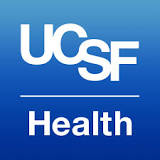The Impact of Diabetes on REvascularization
| Status: | Recruiting |
|---|---|
| Conditions: | Peripheral Vascular Disease, Diabetes |
| Therapuetic Areas: | Cardiology / Vascular Diseases, Endocrinology |
| Healthy: | No |
| Age Range: | 35 - Any |
| Updated: | 4/6/2019 |
| Start Date: | August 1, 2017 |
| End Date: | August 31, 2020 |
| Contact: | Joshua A Beckman, MD |
| Email: | joshua.a.beckman@vumc.org |
| Phone: | 615-322-2318 |
The presence of foot symptoms at rest or tissue necrosis in patients with peripheral artery
disease is a medical urgency and represents a state of critical limb ischemia (CLI) where the
risk of amputation, in the absence of revascularization, is high. No trial conducted to date
in peripheral revascularization has determined the effect of diabetes on mechanism of
revascularization failure. Therefore, this trial represents a unique opportunity to
investigate the mechanisms by which diabetes affects surgical and endovascular
revascularization procedures with the long-term goal of improving outcomes in CLI.
disease is a medical urgency and represents a state of critical limb ischemia (CLI) where the
risk of amputation, in the absence of revascularization, is high. No trial conducted to date
in peripheral revascularization has determined the effect of diabetes on mechanism of
revascularization failure. Therefore, this trial represents a unique opportunity to
investigate the mechanisms by which diabetes affects surgical and endovascular
revascularization procedures with the long-term goal of improving outcomes in CLI.
Peripheral artery disease is a condition defined by marked accumulation of atherosclerotic
plaque below the distal aorta that reduces lower limb arterial perfusion. Blood flow
reductions may be inadequate for exercising limbs and cause ischemic muscle pain, called
intermitted claudication, or, in severe cases, the reduction may be inadequate for basal
metabolism and cause pain at rest, ulceration, or gangrene. The presence of symptoms at rest
or tissue necrosis is a medical urgency and represents a state of critical limb ischemia
(CLI) where the risk of amputation, in the absence of revascularization, is high. The ageing
of the population and the increasing prevalence of diabetes mellitus ensures this population
will continue to grow in the foreseeable future. The impact of diabetes, however, is not
limited to PAD incidence. Diabetic patients represent a particularly vulnerable subset of PAD
patients and have a four-fold risk of CLI compared to non-diabetic patients. Indeed, in
previous studies of CLI, more than half of patients have diabetes. As a result, the
combination of diabetes and PAD accounts for more than half of non-traumatic amputations in
the United States. Diabetic patients often present with foot ulcerations as their first
manifestation of PAD and have challenging anatomy for revascularization. Failed vascular
reconstructions, both endovascular or surgical, often result in additional tissue loss and
transtibial amputations. Despite these challenges, the mechanisms of restenosis and the
impact of diabetes have not been well explored for both types of revascularization in
patients with CLI. The BEST-CLI trial is a multi-center, randomized, comparative
effectiveness trial comparing open surgical bypass therapy to endovascular therapy in CLI
patients with a composite clinical endpoint denoted as Major Adverse Limb Event free survival
(MALE-free survival). However, the BEST-CLI trial does not study the mechanisms by which
revascularization may fail. This proposal will extend the novel clinical work of the BEST-CLI
trial by studying the mechanisms of bypass vein graft and stent failure. The investigators
will adjudicate the mode of revascularization (vein graft or stent) in a central core
laboratory, measure systemic markers of diabetic dysmetabolism including inflammation,
insulin resistance, adverse adipokine expression, poor nutrition, and renal dysfunction, and
begin to study the association of these factors with graft failure. Indeed, no trial
conducted to date in either coronary or peripheral revascularization has determined the
mechanism of revascularization failure, the impact of diabetes, nor the relationship between
conduit patency and clinical outcomes. Therefore, this trial represents a unique opportunity
to investigate the mechanisms by which diabetes affects surgical and endovascular
revascularization procedures.
plaque below the distal aorta that reduces lower limb arterial perfusion. Blood flow
reductions may be inadequate for exercising limbs and cause ischemic muscle pain, called
intermitted claudication, or, in severe cases, the reduction may be inadequate for basal
metabolism and cause pain at rest, ulceration, or gangrene. The presence of symptoms at rest
or tissue necrosis is a medical urgency and represents a state of critical limb ischemia
(CLI) where the risk of amputation, in the absence of revascularization, is high. The ageing
of the population and the increasing prevalence of diabetes mellitus ensures this population
will continue to grow in the foreseeable future. The impact of diabetes, however, is not
limited to PAD incidence. Diabetic patients represent a particularly vulnerable subset of PAD
patients and have a four-fold risk of CLI compared to non-diabetic patients. Indeed, in
previous studies of CLI, more than half of patients have diabetes. As a result, the
combination of diabetes and PAD accounts for more than half of non-traumatic amputations in
the United States. Diabetic patients often present with foot ulcerations as their first
manifestation of PAD and have challenging anatomy for revascularization. Failed vascular
reconstructions, both endovascular or surgical, often result in additional tissue loss and
transtibial amputations. Despite these challenges, the mechanisms of restenosis and the
impact of diabetes have not been well explored for both types of revascularization in
patients with CLI. The BEST-CLI trial is a multi-center, randomized, comparative
effectiveness trial comparing open surgical bypass therapy to endovascular therapy in CLI
patients with a composite clinical endpoint denoted as Major Adverse Limb Event free survival
(MALE-free survival). However, the BEST-CLI trial does not study the mechanisms by which
revascularization may fail. This proposal will extend the novel clinical work of the BEST-CLI
trial by studying the mechanisms of bypass vein graft and stent failure. The investigators
will adjudicate the mode of revascularization (vein graft or stent) in a central core
laboratory, measure systemic markers of diabetic dysmetabolism including inflammation,
insulin resistance, adverse adipokine expression, poor nutrition, and renal dysfunction, and
begin to study the association of these factors with graft failure. Indeed, no trial
conducted to date in either coronary or peripheral revascularization has determined the
mechanism of revascularization failure, the impact of diabetes, nor the relationship between
conduit patency and clinical outcomes. Therefore, this trial represents a unique opportunity
to investigate the mechanisms by which diabetes affects surgical and endovascular
revascularization procedures.
Inclusion Criteria:
- Male or female, age 35 years or older
- Atherosclerotic, infrainguinal PAD
- CLI, defined as arterial insufficiency with gangrene, non-healing ischemic ulcer, or
rest pain, consistent with Rutherford classes 4-6
- Candidate for either open or endovascular infrainguinal revascularization as judged by
the treating investigators
- Adequate inflow into the index femoral artery
- Adequate popliteal, tibial, or pedal revascularization target
- Willing to comply with protocol, attend follow-up appointments, complete all study
assessments, and provide informed consent
- Endovascular revascularization with a stent
- Surgical revascularization with a vein graft-
Exclusion Criteria:
- Femoropopliteal disease pattern consistent with TASC IIA
- Complete occlusion of the iliac artery
- Aortoiliac occlusive disease or severe common femoral artery disease
- Presence of a femoral, popliteal or tibial aneurysm of the index limb
- Life expectancy less than 2 years
- Deemed excessive risk for surgical bypass
- A vascular disease prognosis that includes an anticipated above ankle amputation on
index limb within 4 weeks of index procedure
- Renal dysfunction defined as MDRD eGFR ≤ 30ml/min/173 m2 at the time of screening
- Currently on dialysis or history of a renal transplant
- A documented hypercoagulable state
- Nonatherosclerotic occlusive disease
- Any prior infrainguinal revascularization
- Current immuno-suppressive medication, chemotherapy or radiation therapy
- Absolute contraindication to iodinated contrast
We found this trial at
39
sites
Click here to add this to my saved trials
University of Florida The University of Florida (UF) is a major, public, comprehensive, land-grant, research...
Click here to add this to my saved trials
Mount Sinai Med Ctr Founded in 1852, The Mount Sinai Hospital is a 1,171-bed, tertiary-care...
Click here to add this to my saved trials
3181 Southwest Sam Jackson Park Road
Portland, Oregon 97239
Portland, Oregon 97239
503 494-8311

Oregon Health and Science University In 1887, the inaugural class of the University of Oregon...
Click here to add this to my saved trials
Click here to add this to my saved trials
Click here to add this to my saved trials
University of Colorado Hospital, Site Top medical professionals, superior medicine and progressive change make University...
Click here to add this to my saved trials
Johns Hopkins Hospital Patients are the focus of everything we do at The Johns Hopkins...
Click here to add this to my saved trials
Click here to add this to my saved trials
Click here to add this to my saved trials
Click here to add this to my saved trials
University of Virginia The University of Virginia is distinctive among institutions of higher education. Founded...
Click here to add this to my saved trials
Click here to add this to my saved trials
Ohio State University The Ohio State University’s main Columbus campus is one of America’s largest...
Click here to add this to my saved trials
Decatur Memorial Hospital An American flag bearing only 48 stars waved above Decatur Memorial Hospital...
Click here to add this to my saved trials
Henry Ford Hospital Founded in 1915 by auto pioneer Henry Ford and now one of...
Click here to add this to my saved trials
Click here to add this to my saved trials
Click here to add this to my saved trials
Greenville Memorial Hospital Greenville Memorial Medical Campus is a regional referral center for the diagnosis...
Click here to add this to my saved trials
Click here to add this to my saved trials
Dartmouth Hitchcock Medical Center Dartmouth-Hitchcock is a national leader in patient-centered health care and building...
Click here to add this to my saved trials
Click here to add this to my saved trials
Click here to add this to my saved trials
University of Wisconsin-Madison In achievement and prestige, the University of Wisconsin-Madison has long been recognized...
Click here to add this to my saved trials
Yale-New Haven Hospital Relying on the skill and expertise of more than 4,500 university and...
Click here to add this to my saved trials
Click here to add this to my saved trials
Univ of Nebraska Med Ctr A vital enterprise in the nation’s heartland, the University of...
Click here to add this to my saved trials
University of Pittsburgh Medical Center UPMC is one of the leading nonprofit health systems in...
Click here to add this to my saved trials
Click here to add this to my saved trials
505 Parnassus Ave
San Francisco, California 94143
San Francisco, California 94143
(415) 476-1000

University of California, San Francisco Medical Center UCSF Medical Center is recognized throughout the world...
Click here to add this to my saved trials
Click here to add this to my saved trials
Harborview Medical Center Harborview Medical Center is the only designated Level 1 adult and pediatric...
Click here to add this to my saved trials
Click here to add this to my saved trials
Click here to add this to my saved trials
Click here to add this to my saved trials
Click here to add this to my saved trials
Click here to add this to my saved trials
Click here to add this to my saved trials
Univ of Massachusetts Med School As the commonwealth's only public medical school, we take seriously...
Click here to add this to my saved trials















